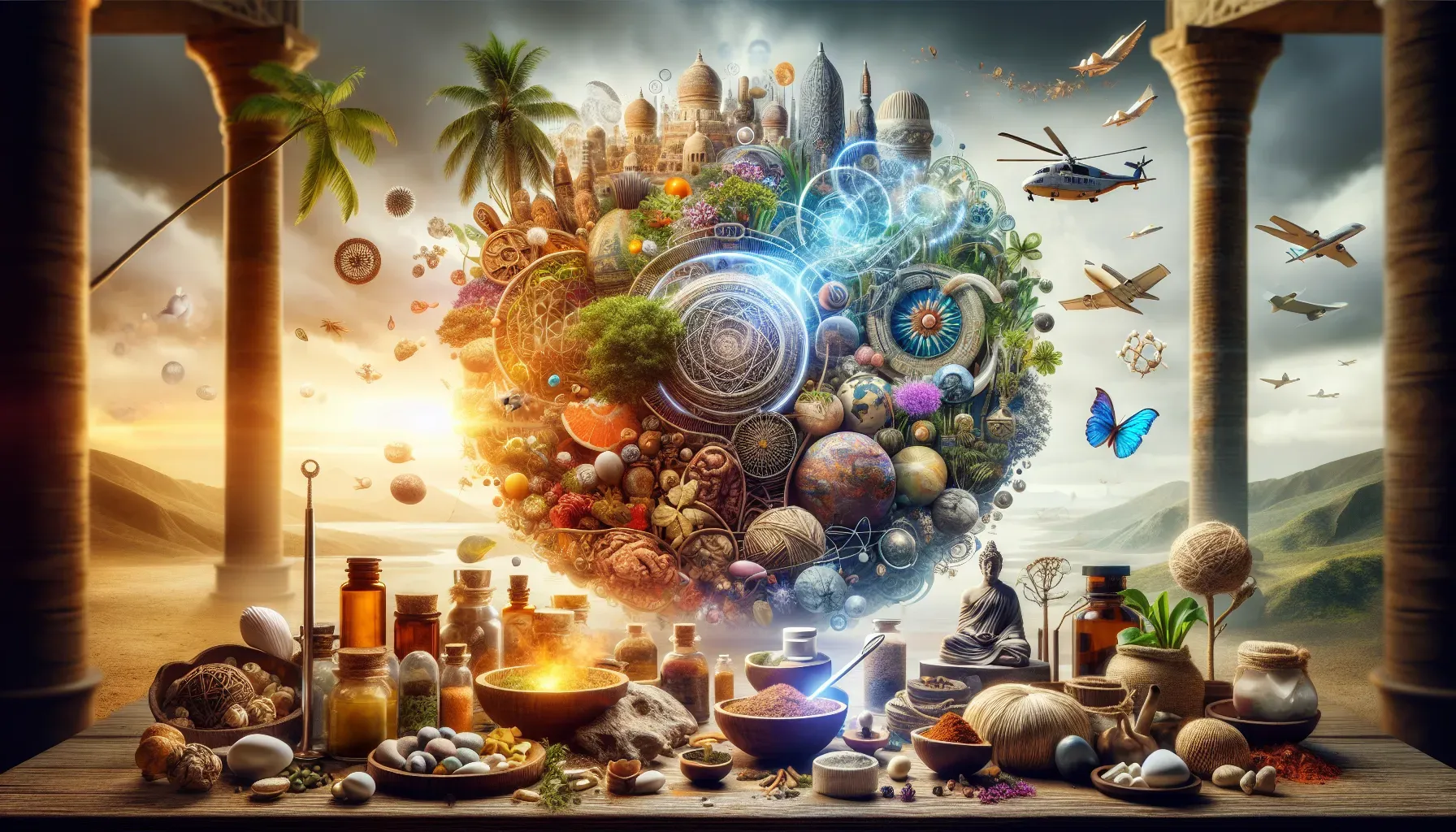Cultural Traditions and Innovations Shaping Holistic Healing Practices

Cultural traditions and innovations play a defining role in shaping holistic healing practices worldwide. From age-old remedies to modern integrative approaches, the influence of diverse cultural perspectives on health and wellness strategies is profound. In this article, we delve into the global impact on holistic healing, unveiling the cultural roots of holistic healing ideals and exploring the convergence of ancient traditions and modern innovations in well-being.
Exploring Global Health and Wellness Strategies
The world is a rich tapestry of diverse cultures, each with its unique approach to health and wellness. Traditional healing systems from various parts of the globe, such as Ayurveda from India, Traditional Chinese Medicine (TCM), Indigenous healing practices, and African herbal remedies, have garnered attention for their holistic principles.
What is Ayurveda and its principles
Ayurveda: Originating more than 5,000 years ago in India, Ayurveda emphasizes the balance between body, mind, and spirit. It advocates personalized approaches to diet, herbal treatment, and yoga to promote well-being.
Understanding Traditional Chinese Medicine (TCM)
Traditional Chinese Medicine (TCM): TCM's foundation lies in harmony and balance. Herbal medicine, acupuncture, cupping therapy, and qigong are integral components aimed at restoring the body's equilibrium.
The role of Indigenous healing practices
Indigenous Healing Practices: Many indigenous communities around the world have their traditional healing systems rooted in cultural beliefs and natural remedies. These practices often involve ceremonies, rituals, and the use of plants for medicinal purposes.
African herbal remedies and their significance
African Herbal Remedies: African traditional medicine encompasses a wide range of healing practices that involve the use of various herbs, spiritual elements, and community involvement.
The roots of holistic healing ideals often intertwine with cultural beliefs, spirituality, and a deep connection to nature. These traditions prioritize understanding the interconnectedness between individuals and their environments, emphasizing a holistic approach to wellness.
Spiritual Significance: Many cultural healing practices are deeply intertwined with spiritual beliefs. The concept of interconnectedness and balance is central to these traditions.
Cultural Roots of Holistic Healing Ideals
Nature-Based Therapies: Traditional healing often involves a profound reliance on nature's offerings such as medicinal herbs, plants, minerals, and even elements like water and clay.
The spiritual significance of healing traditions
Community Support: In several cultures, holistic healthcare involves strong community support systems. Healing is not just an individual endeavor but a communal one.
The importance of community support in healing
In today's rapidly evolving world, there is a captivating synergy between ancient cultural traditions and modern innovations in wellness. The integration of ancient wisdom with contemporary advancements has led to unprecedented shifts in holistic healthcare approaches.
Integrative Medicine: Many modern healthcare providers are embracing integrative medicine which combines conventional Western medicine with alternative therapies rooted in traditional practices.
The Convergence of Ancient Traditions and Modern Innovations
Mind-Body Techniques: Practices like meditation, mindfulness, and yoga have transitioned from ancient spiritual disciplines to widely accepted therapeutic modalities backed by scientific evidence.
Cultural Perspectives Reshaping Holistic Healthcare Approaches
The rise of mind-body techniques in wellness practices
The rich tapestry of cultural perspectives continues to reshape holistic healthcare approaches globally. The recognition of diverse viewpoints has led to a more inclusive and comprehensive approach to well-being.
Cultural Perspectives Reshaping Holistic Healthcare Approaches
Personalized Healthcare: Cultural influences have underscored the importance of personalized healthcare tailored to an individual's unique needs and background.
The importance of personalized healthcare approaches
Diversity in Wellness Practices: Embracing diverse wellness practices from around the world fosters a greater appreciation for different approaches to holistic well-being.
Diversity in wellness practices around the world
In conclusion, the intertwining of cultural traditions and innovations has significantly shaped holistic healing practices. By understanding and respecting diverse perspectives on health and wellness, we open doors to new possibilities for promoting overall well-being.
Frequently Asked Questions
Traditional healing systems include Ayurveda from India, Traditional Chinese Medicine (TCM), Indigenous healing practices, and African herbal remedies. Each system offers unique approaches to health, emphasizing holistic principles that integrate body, mind, and spirit for overall well-being.
Cultural beliefs significantly shape holistic healing practices by emphasizing interconnectedness between individuals and their environments. Many traditions incorporate spiritual elements and nature-based therapies, highlighting the importance of community support and a deep connection to nature in promoting wellness.
Integrative medicine combines conventional Western medicine with alternative therapies rooted in traditional practices. This approach recognizes the value of ancient wisdom while incorporating modern innovations, leading to a more comprehensive understanding of health and wellness in holistic healthcare.
Mind-body techniques such as meditation, mindfulness, and yoga have transitioned from ancient spiritual practices to widely accepted therapeutic modalities. These techniques are now supported by scientific evidence, demonstrating their effectiveness in enhancing mental and physical well-being in contemporary wellness approaches.
Personalized healthcare is crucial in holistic practices as it tailors treatments to an individual's unique needs and cultural background. This approach fosters greater appreciation for diverse wellness practices and enhances the effectiveness of healing by considering personal circumstances and preferences.
Check Out These Related Articles

Cultural Diversity and Wellness: Embracing Traditions for Global Health and Healing

Cultural Curators of Health and Wellness: Embracing Indigenous Wisdom for Global Well-Being

Cross-Cultural Insights into Dietary Philosophies for Holistic Health
